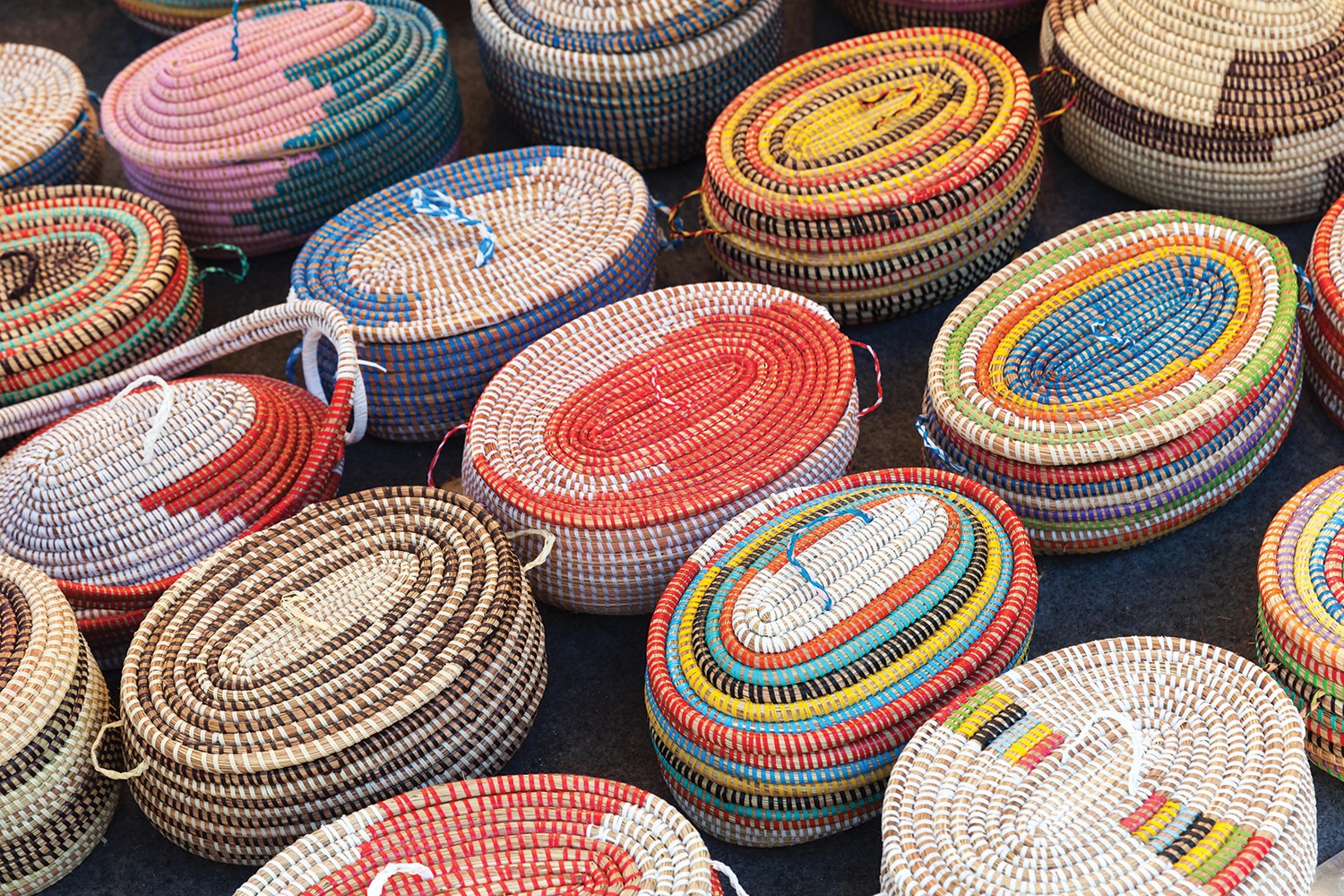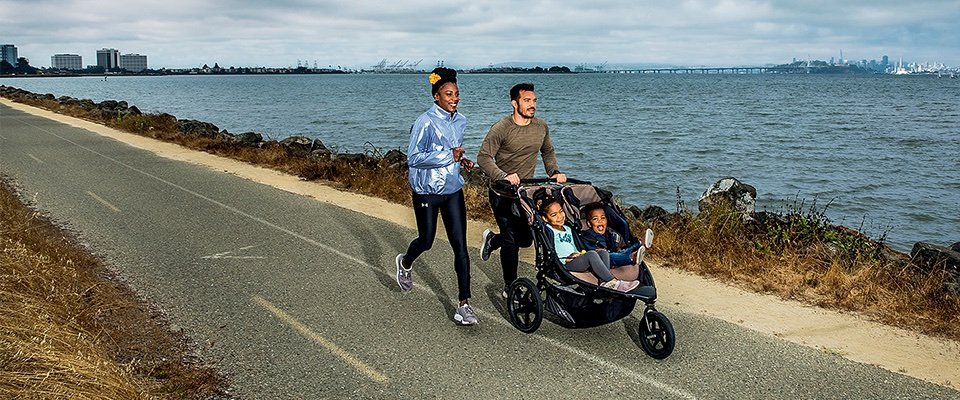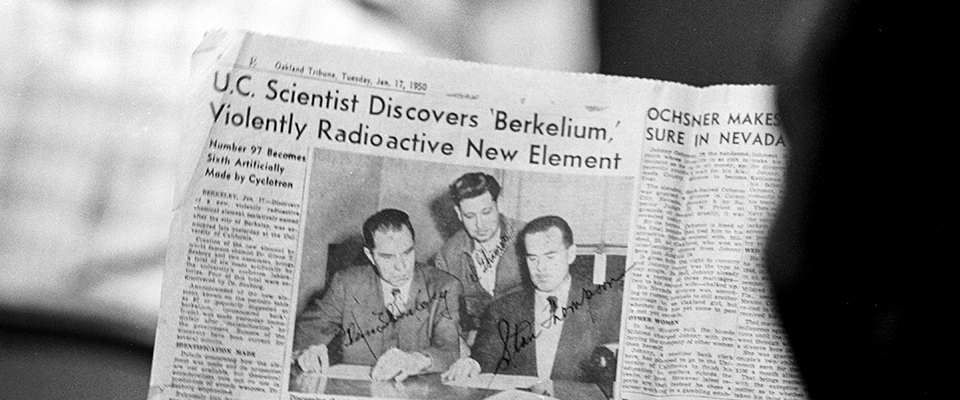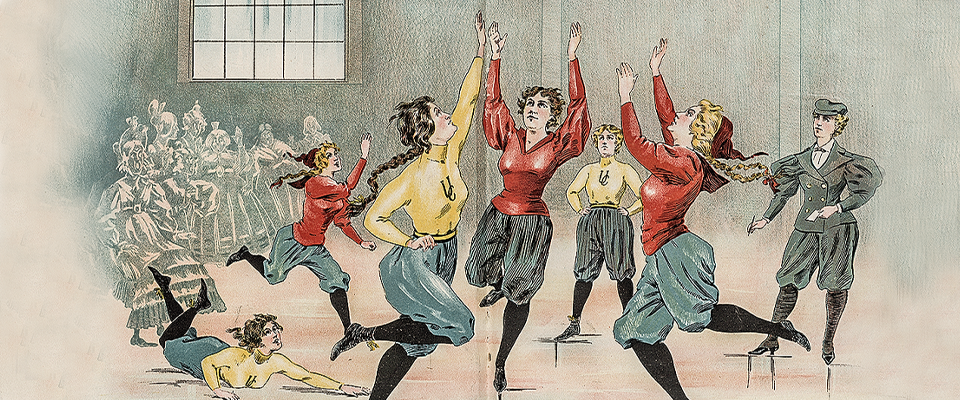Alysia Montaño had just finished a workout when she got the call. It had been only four months since the birth of her daughter, Linnea, in 2014, but she was feeling strong and had her sights set on the 400-meter race at the USA Track & Field Championships in Sacramento. She had worked hard throughout her pregnancy, going to photo shoots in Los Angeles with her sponsor Asics, and continuing to train and race. She said of her mind-set at the time: “I was 100 percent an Asics athlete. Wherever you need me, I’ll be there.”
Even if you’re not a track fan, you may recognize Montaño. At eight months pregnant, she ran in an 800-meter race, not so much to win but to educate fans about the importance of exercise during pregnancy.
When Montaño became pregnant, she thought, “I’ve got a target on my head. Like any mom in any industry, you have to work a thousand times harder to prove you’re not damaged goods.”
The sight of a pregnant runner was certainly eye-catching—eye-popping, even. Images from that race appeared nationwide, and YouTube was full of videos of the event. In a photo from the Asics shoot, her muscular body is airborne, her distended pregnant belly glistening. Asics loved marketing its “pregnant runner”—until suddenly it didn’t.
When she told her Asics representative, Annie Adams, that she was pregnant, Montaño was nervous, but Adams told her to enjoy the time and take care of herself. However, Adams had since left the company, and now there were two men on the other end of the line as Montaño stood at the track at College of the Canyons in Santa Clarita, still glowing from her workout. They wanted to talk about her 2014 performance. It had dropped, the men explained. Asics was cutting her contract by 50 percent.
“You mean the year when I was pregnant and had a baby?” she asked, incredulous. The men referred to the clause in her contract that required her to maintain certain performance minimums, which she had admittedly not done while pregnant.
Upon graduating from UC Berkeley in 2008, Alysia Johnson was at the top of her field, having won her first USA championship title and both the indoor and outdoor NCAA titles. By the time she became pregnant in 2014, she was a six-time USA Outdoor champion, an Olympian, and at one point, one of the top three middle-distance runners in the world. She held—and still holds—the American 600-meter record.
Unlike elite athletes in sports such as basketball, football, and soccer, who are often paid opulent salaries which they supplement with sponsorships, runners like Montaño depend almost entirely on sponsors to make their livings. They only earn extra money if they win a race. Lose their sponsorship, and they’re essentially done. Since most of these sponsors’ contracts don’t have provisions for pregnancy and postpartum recovery, becoming a mother is a career-ending event for most runners.
It’s not something young runners typically think about when they sign contracts. Once they want children, they’re often blindsided by the realization that their contract doesn’t allow them to be both professional athletes and mothers. When Montaño became pregnant, she thought, “I’ve got a target on my head. Like any mom in any industry, you have to work a thousand times harder to prove you’re not damaged goods.”
THE FIRST TIME I MEET MONTAÑO, we sit outside at a quiet coffee shop in the upscale Fourth Street shopping district in West Berkeley. Her hair is arranged in a neat, somewhat complicated updo, though without her trademark flower, which she usually sports at races. I expected her to be fit, but seeing her in person, I understand the sculptor’s impulse; marble or bronze seem the ideal medium to represent so chiseled a body. Beneath the godlike physique, however, is a frantic working mom. She’s half an hour late because she couldn’t find parking, which is fine by me since I too am late—because I’m also a frantic working mom and had realized only ten minutes before our meeting that I’d gotten the day wrong.
Montaño grew up in Santa Clarita in a loving Caribbean family. She got offers from colleges to play soccer but switched her focus to running after winning the 800 meters at the CIF State Championship in 2004. At Cal, training under Tony Sandoval, she started attracting major attention. She was undefeated in her individual events in 2007, winning not only two NCAA titles but her first USA Championship title. Prior to the 2008 season, she was ranked first in the country in the 800. That year, she scored a Nike sponsorship. A spot on the Olympic team seemed all but guaranteed—until she suffered a stress fracture in her foot during the Olympic trials. Montaño left the track in a wheelchair. She came back in 2010 and went on to win five more U.S. titles. Then, after a disappointing finish at the 2013 World Championships, she decided it was time to fulfill another ambition: having a family.
Montaño had been thinking about having kids since she married her childhood friend Louis Montaño in 2011. When she asked Nike what would happen if she got pregnant, her reps told her, “Simple, we’ll just pause your contract.” In other words, they’d stop paying her. It was one of the reasons she left Nike for Asics, a company she thought would be more sensitive to her life plans. Among other things, she appreciated that Asics had a female rep.

After she had her daughter in 2014, Montaño was itching to get back to the track. “I just need to be in a race,” she recalls thinking. “I wanted to hear the stadium.”
Those early postpartum training sessions went well, so she set her sights on nationals and qualified. Despite the fact that her pay had been reduced, she won nationals at six and ten months postpartum and won silver and gold at the Pan American Games, not to mention qualifying for the World Championship team. Balancing racing and childcare required a dizzying routine of pumping, nursing, running, napping, eating, and weight training sessions, which she managed with help from her husband.
Then came another stroke of bad luck. She tripped during the last 120 meters of the 2016 Olympic trials, killing her shot at a spot on the team. Her rep at Asics had moved on and the company cut her contract not long after.
Was it because she didn’t make the team? Because she was 30? Because Asics thought she might have another child? All of the above? “Your guess is as good as mine,” Montaño says.
While this is ostensibly a story about a privileged athlete, it’s also one most American mothers know all too well. The United States is the only industrialized country without federally mandated paid maternity leave, so less than 20 percent of Americans have access to paid parental leave policies. As such, most women in the United States are faced with unappealing options: go back to work before they are ready, endure financial hardship if they decide to take time off to heal and care for their newborns, or be pushed out of their careers entirely.
Alysia Montaño says that while we live in a society that talks a lot of pro-family talk, it doesn’t walk the walk.
Whatever they choose, mothers pay for the rest of their careers. According to the National Partnership for Women & Families, American women in general earn 80 cents to their male counterparts’ dollar, mothers however earn only 71 cents. These gaps exist in every state, and the problem is more severe for mothers of color.
The National Women’s Law Center estimates that every year a mother has a minor child living at home results in $16,000 in lost annual wages—which is even more alarming when you consider that the cost of raising a child averages about $14,000 a year.
The Montaños, who now have two kids, want more. But Alysia says that while we live in a society that talks a lot of pro-family talk, it doesn’t walk the walk. As an elite athlete, she enjoys certain privileges, so the fact that even she paid a “pregnancy penalty” underscores the scope of the problem faced by other, less visible women: contract workers, housekeepers, service industry employees, agricultural workers, or any woman in a field in which, as Montaño says, “your body is your business.”
NOT EVERYONE WAS ENAMORED of “the pregnant runner.” The YouTube videos of her run are laden with comments criticizing her for competing while pregnant, despite the fact that she got clearance from her doctor.
It wasn’t just social media. A FedEx driver once delivered a package to the Montaño house while a pregnant Alysia was lacing up for a run. The man said to her husband, “I wouldn’t let my wife do that.” At first, Alysia jokes during our meeting, “I was like, ‘Um, can I have my package?’” But then she gets serious, “No, but it was an opportunity to educate him.”

In 2017, she had a second child, a son named Aster. Again she competed while pregnant, this time at five months.
She no longer considers herself a professional athlete, since she doesn’t earn the majority of her income running and works full-time in marketing at Spin, a scooter sharing company. There is a wistfulness in her voice when she talks about the days when she had a sponsor, when all she had to do was run. At one point in our conversation, she interrupts herself as a pair of women jog by the coffee shop through the afternoon sunlight. “Oooh!” she says, pointing at them, “Runners. I’m jealous.” Instead of running after our meeting, Montaño will be taking a work call from her car.
For our next meeting, I suggest a run. Just as soon as the words leave my mouth, I remember that Montaño is one of the fastest people in the world and that I myself am seven months postpartum and still regaining my strength. I try to backtrack, but she assures me that we’ll just do three miles. When I arrive at her house, a modest but charming bungalow in West Berkeley, I’m relieved to discover that we’ll be accompanied by her two children, who will be pushed in a jog-stroller by Louis. The kids should slow us down, I think. But as we take off from the house toward the trails that run along the Berkeley waterfront, Montaño makes it clear that we’re going to ditch Louis and the kids. She graciously runs at an ordinary mortal’s speed, even checking in occasionally to make sure the pace is OK.
Montaño is not wearing Asics or Nike or any other recognizable brand. Her T-shirt is from Target. The text on the front reads “Save the Mermaids,” a nod to her daughter, who is a mermaid enthusiast. It seems apt. She’s repping motherhood these days, not brands.
As we wind our way through the marinas, Montaño loses track of the mileage, and it becomes clear that the three-mile run is at risk of turning into six. She offers to take an Uber with me back to her house. “I’m very aware of how running can be hard on the hips and joints postpartum,” she says. She herself felt rushed back to the track after giving birth. She had wanted more time to heal but was worried about her contract, so she came back at three months.
As it happens, our turnaround point—in César Chávez Park, overlooking the Bay—was where I took my first substantial walk two weeks after giving birth. I remember thinking at the time it was a miracle that I was able to make it half a mile.
MONTAÑO FITS HER TRAINING into a busy schedule of work and childcare with the help of Louis. A former football player, he appears equally fit and doubles as Alysia’s personal trainer, scheduler, and social media manager. Louis explains that in order for Alysia to maintain her rigorous training schedule, they implemented a strict sleep-training routine that had the kids sleeping through the night at 12 weeks. When Alysia went to the World Championships in Beijing, she pumped for 10 days and shipped her milk back home for her daughter. Alysia continued to breastfeed while she was training. Louis was responsible for washing the pump parts. He and I commiserate about what a nuisance the process is—something I’m more accustomed to doing with my mom friends.
As we talk, I find myself daydreaming about a world in which every woman has a Louis. Oh, the things we could accomplish! Alysia’s career is the family’s priority, but she says, “If you ask me to choose between my family and running, I’m always going to choose my family.” The point is, though, that male athletes aren’t asked to choose, and she shouldn’t be either.
The physical challenges of returning to professional athletic competition—or any kind of work—after pregnancy are real. After giving birth, I liked to tell people that it took me about five months to stop feeling like I had been hit by a train.
Montaño lights up when she’s asked about her own mother, the seventh of ten children, whom she describes as having a “quiet fire.” If someone cut ahead of her mom in line, Montaño says, instead of yelling at them or letting them pass, she would simply move around the offender and assume her rightful place. Montaño knows about being cut in line. In 2015, the World Anti-Doping Agency released a report strongly suggesting that the Russian runners who took gold and bronze in the women’s 800-meter race at the 2012 London Olympics had used performance-enhancing drugs. Alysia, who finished fifth, should have medaled—and she wasn’t about to let people forget it. She had been robbed of her “podium moment,” not to mention a significant amount of money—as much as half a million dollars, by Montaño’s estimate. “Absolutely, I deserve that bronze medal,” she told The New York Times, and called, in no uncertain terms, for the Russians to be banned from the sport.
In May of this year, Montaño made even bigger waves when she appeared in a filmed opinion piece, or “op-doc,” for The New York Times in which she accused her former sponsor, Nike, of sexism for its treatment of pregnant athletes.
In the video, she describes having to tape her abs and wrap her stomach so she could come back to the track before she was ready and talks about the risks that pregnant athletes face, such as losing their health insurance and income if they don’t perform. “Companies know this isn’t right, which is why they implement confidentiality clauses,” she says. In particular, she calls out Nike’s “Dream Crazy” ad, which celebrated boundary-pushing athletes-turned-activists like Colin Kaepernick and Serena Williams. “We’re told … if we want to be an athlete and a mother, ‘That’s just crazy,’” Montaño says, her voiceover accompanied by images of women training and scenes from her own home life. “Great athletes push the limits of what’s possible. We’re the ones who decide what dreams are crazy and what dreams make perfect sense. … So come on, Nike, when are you going to start dreaming crazy?”
The reaction was swift. Other athletes chimed in. Fellow Olympic runners Kara Goucher and Allyson Felix immediately broke their nondisclosure agreements to talk about their experiences. Felix, who won gold at five world championships, wrote, “If I, one of Nike’s most widely marketed athletes, couldn’t secure these protections, who could?”
Less than two weeks after Montaño’s op-doc appeared, Nike announced that it would waive pay reductions based on performance for a year after an athlete gives birth. The company added that in 2018, “we standardized our approach” so that women wouldn’t be penalized. Montaño responded, “Your standard approach is standard for men. I want to see not just Nike—the [entire] sports industry—implement practices in place that specifically protect female athletes, and that includes clauses for maternity and pregnancy that explicitly say you are protecting this class.”

The physical challenges of returning to professional athletic competition—or any kind of work—after pregnancy are real. During the 40 weeks of a typical pregnancy, women’s bodies operate at maximum metabolic intensity. After giving birth, I liked to tell people that it took me about five months to stop feeling like I had been hit by a train.
Still, many women have thrived in athletics after and even during pregnancy. Mothers have been competing in the Olympics since women have been competing. When the 30-year-old runner and mother Fanny Blankers-Koen competed in the 1948 London games, expectations were low. Scoffers nicknamed her the “flying housewife,” but she shocked crowds by winning four gold medals for the Dutch team. Diver Juno Stover-Irwin competed in the 1952 Helsinki Olympics while pregnant with her second child. She wouldn’t retire until 1961, after having four of her five children. More recently, at the 2016 Olympics in Rio, Cal alum Dana Vollmer, who had given birth to a son in 2015, became USA Swimming’s first mother ever to win a gold medal.
It will likely take more than outspoken athletes to change sports culture. After all, when it comes to industry executives at companies like Nike and Asics, Montaño says it’s still “an old boys club.”
While women have, by and large, earned greater respect for their athletic ability (when’s the last time anyone was accused of throwing like a girl?), the patriarchy hasn’t exactly come tumbling down. Still, you gotta admit, women are having a moment. Since the #MeToo movement exploded in 2017, women and their allies have been steadily exposing and rooting out sexual harassers from the workplace. In politics, the 2020 candidate pool is brimming with women, and their campaigns are marked with an energy unmatched since 1992’s “Year of the Woman.” But despite these gains, women’s earnings compared to their male counterparts’ have largely stagnated for the past 30 years.
Montaño’s rebellion against her sponsors could be seen as part of a larger social movement, one that goes far beyond sports. As Berkeley sociologist Harry Edwards has long argued, sports are a kind of mirror, reflecting and even amplifying the problems of the larger society. Take the U.S. Women’s National Team and its discrimination lawsuit against the U.S. Soccer Federation, in which Alex Morgan ’10 is the lead plaintiff. The women point out that they are paid less than male soccer players, even though they have outperformed the men and have brought in more revenue, as underscored by the team’s success at the World Cup in July.
Or take Serena Williams’s 2018 act of resistance at the U.S. Open, when she steadfastly excoriated an umpire, accusing him of levying harsher penalties against her than her male counterparts. “Men out here, they do a lot worse, but because I’m a woman you’re going to take this away from me?” Williams lost the game, but she won the war, earning praise from the public and tennis stars like Billie Jean King and Victoria Azarenka.
It will likely take more than outspoken athletes to change sports culture. After all, when it comes to industry executives at companies like Nike and Asics, Montaño says it’s still “an old boys club.” The four Nike executives who handle track and field contracts are all men. And last year, a New York Times investigation revealed widespread harassment of women at the company, suggesting that there may be a wider culture of sexism within the apparel giant.
“I don’t think it’s a coincidence that so many athletes from Cal are socially active. Cal has set an incredible foundation that teaches students to use our voices to fight for good.”
Annie Adams, who was Montaño’s rep at Asics, says that she was thrilled when Montaño told her she was pregnant. “She was valuable to Asics, pregnant or not.” After all, Montaño arguably garnered more attention from the general shoe-buying public as the “pregnant runner” than she did by winning races. I, for one, do not follow track and field, despite being a shoe-buying runner. Her name meant nothing to me until I became pregnant and a friend told me about her. I immediately went to YouTube. I wanted to see the pregnant runner in action. Eyeballs, clicks, and virality are the industry’s currency and indeed the whole point of sponsorship. By that measure, hadn’t she paid dividends to her sponsors?
Adams says she takes a holistic view of athletes. She isn’t looking at just their personal records but also at who they are as people and how they relate to fans. But she says that the industry as a whole has tended to treat pregnancy like an injury. Asked if she thinks having more women reps would change this, she is unequivocal, “Yes, 100 percent.”
Adams gives Montaño credit for leading the charge. “A lot of female athletes had the frustration, no one else came out and said it like Alysia.” Montaño in turn gives Berkeley some of the credit. With a nod to Cal Bears from Joe Kapp to Marshawn Lynch, she says, “I don’t think it’s a coincidence that so many athletes from Cal are socially active. Cal has set an incredible foundation that teaches students to use our voices to fight for good.”
AFTER ALYSIA AND I FINISH OUR RUN, I head with the Montaños and their kids to a pub that’s airing the women’s World Cup. The U.S. team—the one suing for equal pay—is playing France. Montaño wants Linnea in particular to see the game. “That’s my goal,” she says, “to have my daughter watching women in many fields doing amazing things.” It seems Linnea has taken the message to heart. She tells me, with complete confidence, that she’s going to be a singer when she grows up but that right now, at age 4, she’s already a mermaid.
Montaño’s own professional aspirations have changed. She says that she no longer has her sights set on personal records or the next Olympics. Instead, she wants to see federally mandated maternity protections for women, both in and out of sports, and to “share running with a broader community.”
A gold medal, a world record—personal feats like that won’t change women’s lives. And that, ultimately, is what she wants.
At first, I admit, I find this answer disappointing. Where is the woman who hungers for the roar of Olympic crowds?
Legislative change? Sharing running with a wider community? It all feels a little bland and toothless in comparison. And it’s a gender stereotype: Yet another woman sacrificing her personal goals for the betterment of others.
But on second thought, I realize that what she aspires to is actually far more ambitious than merely speeding across a finish line. A gold medal, a world record—personal feats like that won’t change women’s lives. And that, ultimately, is what she wants.
In the pub, the Montaños are riveted by the soccer game, save for Aster, who is chewing on an orange rind and mesmerized by the lights above the table. The place is packed with people eating lunch. I hadn’t realized they were watching the game until the U.S. scores, and the entire place erupts in cheers. Before the game ends, Louis pulls Aster out of his high chair and takes him home for a nap. Linnea crawls into her mom’s lap as they watch the final moments of the game. When the U.S. wins and the players run across the field in celebration, mother and daughter burst into applause, swaying for joy in each others’ arms.
Laura Smith is deputy editor of California. She is the author of The Art of Vanishing (Viking, 2018).






















